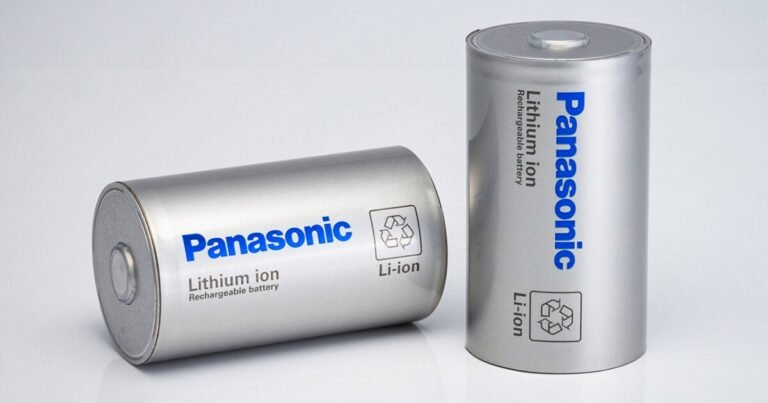Panasonic has announced that it is ready to begin mass production of its long-awaited 4680 lithium-ion battery cells, which are specifically designed to increase electric vehicle range, power, charging, and efficiency while reducing costs. .
Traditional EV packs are typically built around a stack of 2170 cells with a diameter of 21 mm and a length of 70 mm (0.83 x 2.8 inches). The 4680 cell, as the name suggests, is much thicker and slightly longer at 46 x 80 mm (1.8 x 3.1 inches).
So what’s the big deal here? Well, these thicker 4680 cells store five times more energy than smaller cells. This doesn’t mean you can expect a 500% range increase when installed in an EV, but it will require less support material at the system level, making it lighter and more compact for a given energy capacity. .
According to EV Lithium, it should also be able to handle higher instantaneous power levels. This means more peak power to the wheels and potentially faster charging. They also need to deal with heat better, which means increased efficiency and sustained power output. And finally, we need to offer cheaper products that help reduce the green premium faced by car buyers considering the transition to electric vehicles.
It’s the same size as the cell Tesla unveiled at Battery Day 2020, and promises around 16% more range and 600% more peak power at a lower cost. After some serious difficulties, these are now in production. In fact, Tesla recently moved to a second-generation 4680 “CyberCell” design for the Cybertruck, reducing weight from 70g to 49g (2.5oz to 1.7oz).
Panasonic has not yet released specifications for its 4680 batteries, so we can’t compare how they stack up, but the entire 60,907 square meter (655,600 square foot) factory in Wakayama was destroyed. It will be re-equipped specifically for production of the 4680, which is scheduled to begin after final evaluation, and up to 400 staff will be on the line by March next year.
panasonic
The company calls itself the world’s No. 1 EV battery manufacturer. The company has agreements with Tesla, Lucid, Toyota, Ford, and others, and is considering partnerships with companies such as Subaru and Mazda.
“We are excited to be ready to begin mass production of our cutting-edge 4680 cell,” said Kazuo Tadanobu, Panasonic’s president and executive officer, in a press release. “This milestone is the culmination of many years of expertise in cylindrical lithium-ion battery manufacturing, and we believe it will revolutionize the battery and EV industries. With the addition of the 4680 cell to our lineup, we are excited to “We will be able to respond to a wide range of products” needs, promote further adoption of EVs, and advance our mission of realizing a sustainable society. ”
Meanwhile, Panasonic has also signed an agreement to begin using Washington-based company Sila’s high-performance silicon anode technology, promising an additional 25% increase in battery energy density, at least on a volumetric basis. . However, this could take more than five years to reach mass production.
Certainly, anything that can take advantage of reliable lithium-ion chemistry to improve weight, volume, safety, performance, EV range, cost, etc. is a very welcome development.
Source: Panasonic




